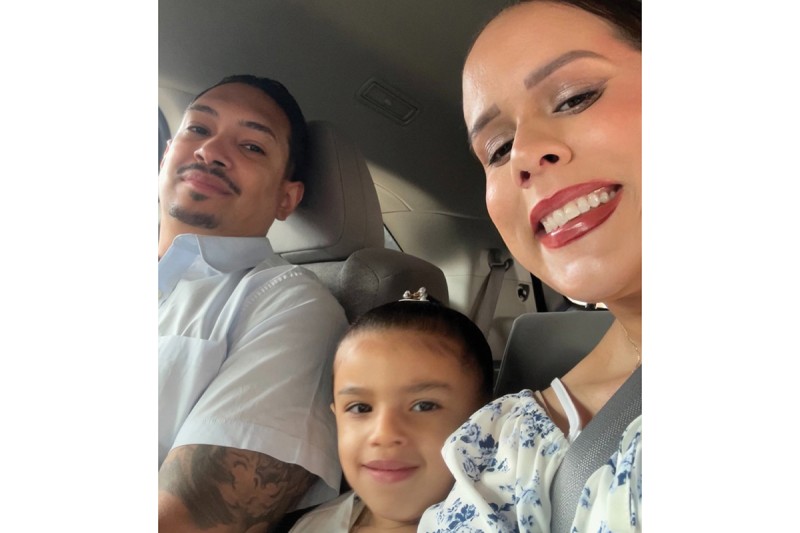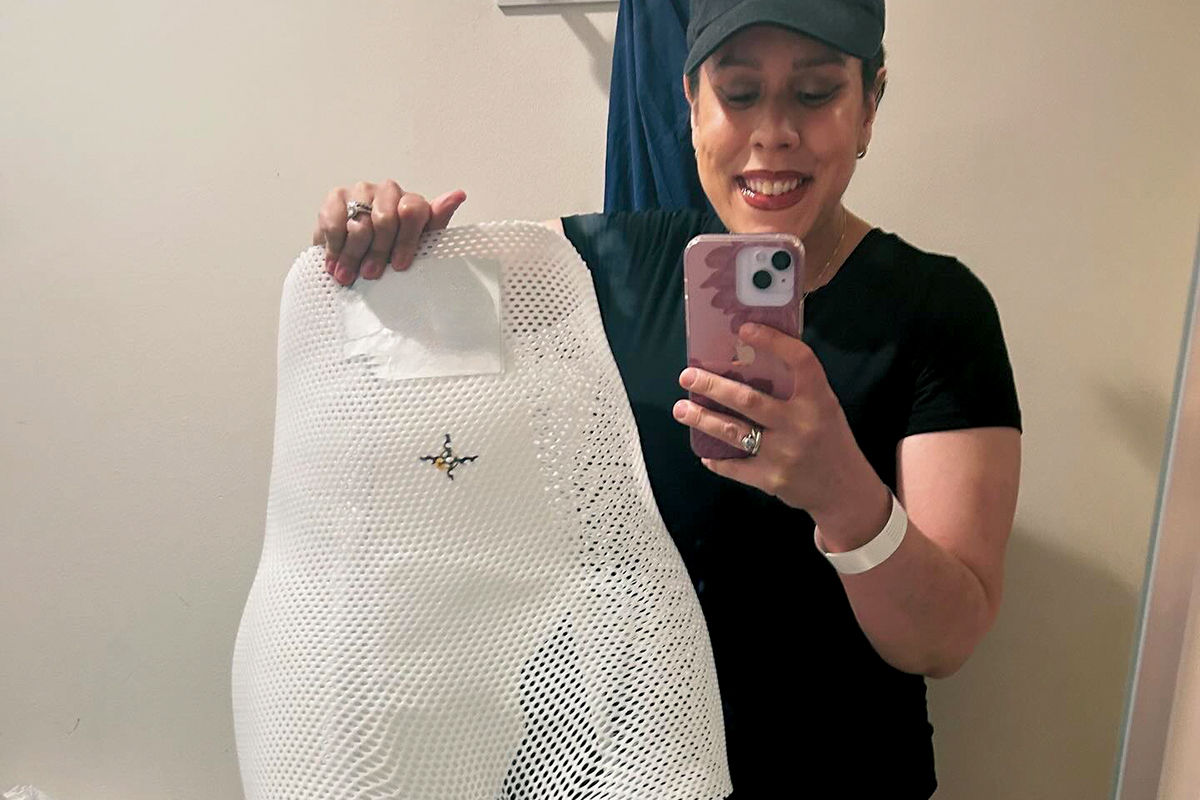
It was hard enough for Stephanie Soto-Vega to get the news that her breast cancer had spread to her hip bones and spine.
Then came another blow: Her insurance company wouldn’t cover the medication to keep the cancer under control. It cost $15,000 a month. “I was really worried,” remembers Stephanie, who had a new baby named Luna. “I saw the price and thought, ‘How am I going to afford this?’ It was impossible.”
Stephanie is like so many patients who experience side effects beyond the toxicity of treatments: They face a situation some experts have dubbed “financial toxicity.” Even when someone has insurance, a slide into a deep hole of debt can be triggered by co-payments and lost income from missing work. Many patients struggle to meet basic needs like housing, food, and transportation.
Not being able to pay for cancer treatment is especially a problem for the growing number of younger people with cancer, like Stephanie, who are earlier in their careers and are less likely to have significant savings. According to a recent study of patients conducted at Memorial Sloan Kettering Cancer Center (MSK), more than half of people under 40 with cancer experience financial toxicity. About one in four are unable to afford at least one basic need while paying for cancer treatments.
Helping MSK Patients Find Resources for Financial Support
It’s a problem MSK has been actively addressing head-on for all age groups, with the help of:
- Medical staff, including doctors and nurses
- Social workers
- Pharmacists
- MSK’s patient financial services team
- Generous donors
- MSK’s Immigrant Health and Cancer Disparities Service
- MSK’s Office of Health Equity
“We see financial toxicity as something we have the power and capacity to help patients overcome, just as we help them with other side effects from treatment,” says nurse Bayley Sharma, MS, RN, who is part of MSK’s Affordability Task Force.
How Stephanie Got Financial Relief for Her Metastatic Breast Cancer Treatment
Stephanie, now 36, was more fortunate than many people with cancer. Her employer, the New York Metropolitan Transportation Authority (MTA), has generous policies for fully paid medical leave.
After her cancer came back, her boss set up a GoFundMe page, which helped with some expenses not covered by insurance — including acupuncture copayments, therapeutic massage for her bone pain, and taking rideshares to her appointments.

Although grateful, she and her husband, Eduardo, were embarrassed. And they couldn’t imagine asking for more money to cover her medical expenses. “I didn’t want everyone to know,” she says. “I didn’t want to be treated differently.”
When Stephanie’s insurance company denied coverage for the expensive drug that she needed, her doctor, breast medical oncologist Victoria Blinder, MD, appealed again and again. Refusing to take no for an answer, Dr. Blinder referred Stephanie to MSK’s patient financial services team, which has special expertise in fighting to get patients what they need. They contacted the drug manufacturer directly and were successful in finding a financially workable solution.
“That was a huge relief for me,” Stephanie says.
How MSK Identifies Those With Financial Needs and Helps Them Afford Their Care
MSK teams are sensitive to the fact that every patient’s comfort level is different when it comes to asking for help paying for their cancer treatment.

“Some people are very open and may lean on their support network for help, but others might be more private or feel embarrassed or nervous to ask their support system for help,” says MSK social work manager David Sarfati, MSSW. “Sometimes it feels easier to share these challenges with a healthcare professional.”
Nurses are often the first to identify when cancer patients are experiencing financial hardship in paying for their care, whether or not patients raise these issues on their own.
As representatives of MSK’s Affordability Task Force, nurse Sharma and nurse Amy Caramore, BSN, RN, partnered with Lana Vega, MHA, in Strategy and Innovation to create a survey to make screening for financial hardship routine. “Once we know there’s a problem, or a potential problem, we owe it to every single patient to do everything in our power to prevent it from happening,” Sharma says.
How Financial Toxicity Impacts Survival Rates

The financial effects of cancer of not being able to afford treatment can have devastating effects on cancer outcomes and survival rates.
“Financial hardship is a critical cause of health disparities,” says Dr. Blinder, who has conducted research on this topic. “Prior research has shown that cost considerations lead some patients to miss scheduled treatment appointments or take less than the prescribed dose of medication at home. This probably explains why cancer patients who have severe financial hardship don’t live as long as patients who are more financially secure.”
And then there’s the paradox of better cancer treatments.
“Due to advances in cancer treatment, many patients with metastatic cancer can now live for a very long time,” Dr. Blinder says. “But for many of these patients, their treatment is never finished. This can lead to higher long-term costs and longer periods of decreased earning. We need to find a new framework for supporting these patients, including helping them financially.”
The Long-Term Outlook for Stephanie’s Breast Cancer Treatments
Stephanie, who must remain on treatment since her cancer has spread, is worried. Already, she has had to change medications once since her cancer recurrence. MSK’s team again stepped in to work directly with the manufacturer.
Fortunately, Stephanie’s employer has accommodated her needs and enabled her to work from home. But she has used up her fully paid medical leave, so any future time off will be at reduced pay.
For Stephanie, the financial care above and beyond the cancer treatment has made all the difference for her family. “I’ve always felt like Dr. Blinder and the whole team would do anything for us,” she says.
MSK’s Immigrant Health and Cancer Disparities Service is supported by The Ralph Lauren Corporate Foundation.
Health Equity initiatives are supported by Arbour Way Foundation/Wolpow Family and Jamie Nicholls and Fran Biondi.
The Patient Financial Assistance Program is supported by Raj and Indra Nooyi.

